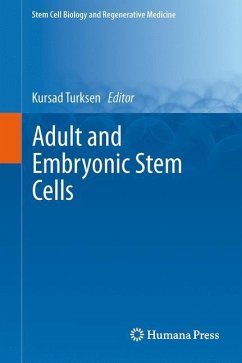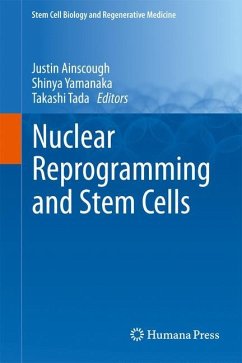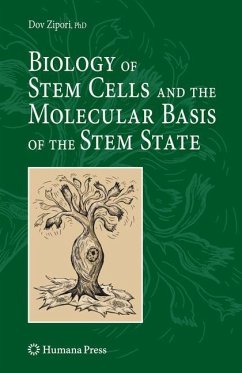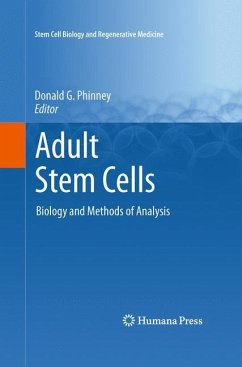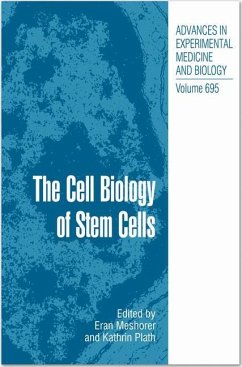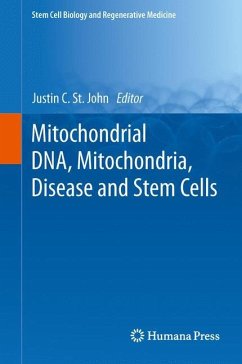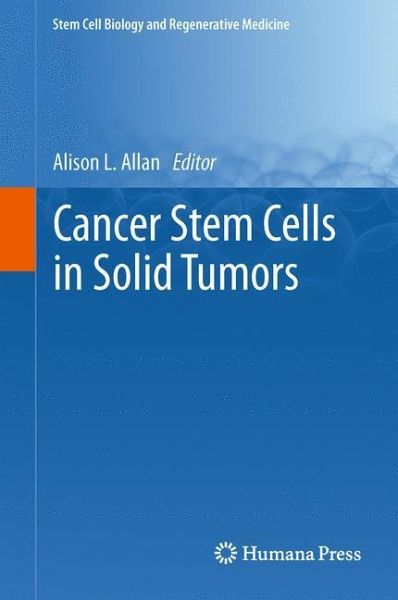
Cancer Stem Cells in Solid Tumors
Versandkostenfrei!
Versandfertig in 6-10 Tagen
151,99 €
inkl. MwSt.

PAYBACK Punkte
76 °P sammeln!
The "cancer stem cell" hypothesis postulates that cancer arises from a subpopulation of tumor-initiating cells or cancer stem cells (CSCs). While the idea of cancer stem cells has been around for more than a hundred years, evidence from the fields of hematology and cancer biology has now demonstrated the critical role of stem cells in hematological malignancies and suggested that these same mechanisms are also central to the initiation, progression, and treatment of solid cancers. Clinical and experimental studies have shown that CSCs exhibit many classical properties of normal stem cells, including a high self-renewal capacity and the ability to generate heterogeneous lineages; the requirement for a specific "niche"/microenvironment to grow; and an increased capacity for self-protection against harsh environments, toxins, and drugs.
Cancer Stem Cells in Solid Tumors represents a detailed overview of cancer stem cells and their role in solid cancers. Comprised of 24 chapters, this volume will provide readers with a comprehensive understanding of this important and evolving field.
Topics covered include:
- Introduction of the CSC hypothesis
- Historical perspectives and the contributing lessons from leukemia
- Current knowledge regarding the identification and role of CSCs in various forms of solid cancer including breast, brain, colorectal, pancreatic, prostate, melanoma, lung, ovarian, hepatocellular, and head and neck cancer
- Molecular pathways involved in driving CSC function, with a particular focus on the novel convergence of embryonic and tumorigenic signaling pathways
- In vitro and in vivo assays, model systems, and imaging modalities for studying CSCs
- The clinical importance of CSCs for cancer management and treatment, including important implications for prognosis, prediction, and treatment resistance
- Consideration of the controversy surrounding the CSC hypothesis and important unanswered questions in this field
This collective work was written by a group of prominent international experts in cancer biology, oncology, and/or stem cell biology. It will serve as a valuable resource for established researchers, professors, health care professionals, and students in the medical and scientific community who are investigating stem cells and/or oncology.
Cancer Stem Cells in Solid Tumors represents a detailed overview of cancer stem cells and their role in solid cancers. Comprised of 24 chapters, this volume will provide readers with a comprehensive understanding of this important and evolving field.
Topics covered include:
- Introduction of the CSC hypothesis
- Historical perspectives and the contributing lessons from leukemia
- Current knowledge regarding the identification and role of CSCs in various forms of solid cancer including breast, brain, colorectal, pancreatic, prostate, melanoma, lung, ovarian, hepatocellular, and head and neck cancer
- Molecular pathways involved in driving CSC function, with a particular focus on the novel convergence of embryonic and tumorigenic signaling pathways
- In vitro and in vivo assays, model systems, and imaging modalities for studying CSCs
- The clinical importance of CSCs for cancer management and treatment, including important implications for prognosis, prediction, and treatment resistance
- Consideration of the controversy surrounding the CSC hypothesis and important unanswered questions in this field
This collective work was written by a group of prominent international experts in cancer biology, oncology, and/or stem cell biology. It will serve as a valuable resource for established researchers, professors, health care professionals, and students in the medical and scientific community who are investigating stem cells and/or oncology.






